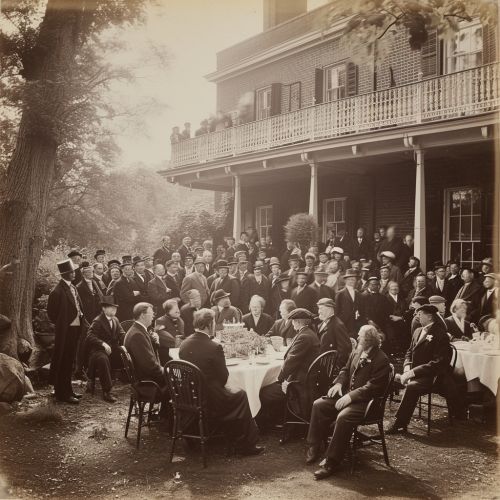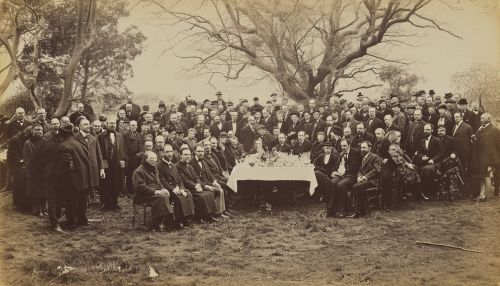Conservative Party (Colombia)
History
The Conservative Party is one of the oldest political parties in Colombia, tracing its origins back to the mid-19th century. The party was officially founded on October 4, 1849, by Mariano Ospina Rodríguez and José Eusebio Caro. The party's early years were marked by a strong adherence to Catholic principles and opposition to the liberal reforms of the time.


The Conservative Party played a significant role in the Colombian Civil War, also known as the War of a Thousand Days, which took place from 1899 to 1902. The war was primarily a conflict between the Conservative Party, which controlled the presidency, and the Liberal Party, which was in opposition. The war resulted in the death of approximately 100,000 people and ended with a conservative victory.
In the 20th century, the Conservative Party continued to be a major player in Colombian politics, alternating in power with the Liberal Party. During this period, the party underwent several ideological shifts, moving from a more traditionalist and religiously oriented platform to a more modern and pragmatic one.
Ideology and Platform
The Conservative Party's ideology is rooted in conservatism, with a strong emphasis on traditional values, religious faith, and social stability. The party supports free market economics, but also advocates for a strong role of the state in the economy to ensure social welfare.
The party's platform includes a commitment to the protection of private property, the promotion of family values, and the defense of national sovereignty. It also emphasizes the importance of law and order and supports strong measures against crime and corruption.
Electoral Performance
The Conservative Party has had a significant impact on Colombian politics, having produced many presidents and lawmakers throughout its history. The party's electoral performance has varied over time, with periods of dominance as well as periods of decline.
In the early 20th century, the Conservative Party was the dominant force in Colombian politics, holding the presidency for several consecutive terms. However, the party's influence waned in the mid-20th century, as the Liberal Party gained strength.
In recent years, the Conservative Party has struggled to maintain its electoral relevance, with a decline in its share of the vote in both presidential and legislative elections. Despite these challenges, the party remains an important player in Colombian politics, with representation in both the national and local levels of government.
Notable Figures
Several notable figures have emerged from the Conservative Party throughout its history. These include Mariano Ospina Rodríguez, one of the party's founders and a former president of Colombia, and Andrés Pastrana Arango, who served as president from 1998 to 2002.
Another notable figure is Álvaro Gómez Hurtado, a prominent conservative politician and intellectual who was assassinated in 1995. Gómez Hurtado is remembered for his contributions to Colombian political thought and his efforts to promote peace and reconciliation in the country.
